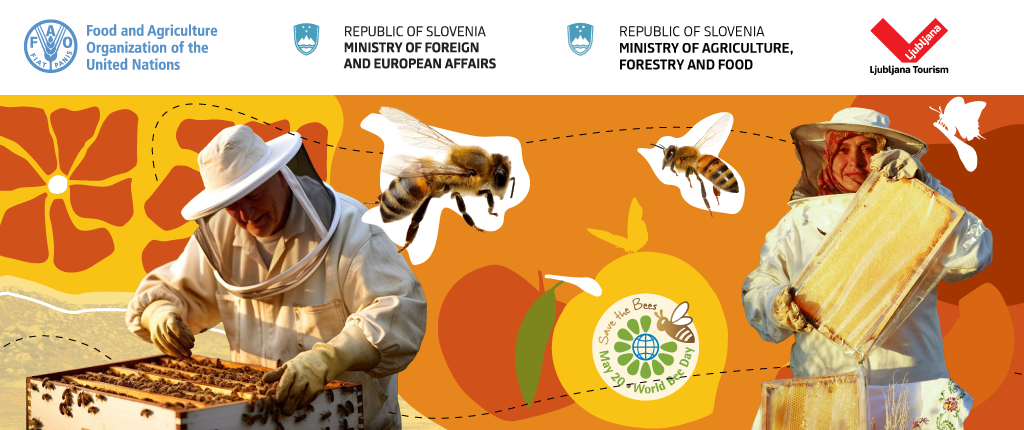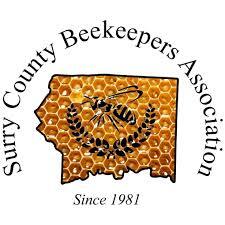Master Melittologists garner national award for biodiversity conservation
MCMINVILLE, Ore. – From childhood Dan and Michael O’Loughlin were hooked on the natural world and the creatures that inhabit it. Their fascination never waned and as adults they’ve turned their 200-acre grass seed farm along the South Yamhill River near McMinnville into a model for environmental stewardship.
For their significant efforts, the brothers received the national Farmer-Rancher Pollinator Conservation Award from the National Association of Conservation Districts and the Pollinator Partnership.
“Growing up, Dan and I were into creatures,” said Michael O’Loughlin, an Oregon State University Extension Service Master Gardener and Master Melittologist. “We were always bringing home snakes and letting them go in the house. We were always outdoors. I don’t think there was ever a conscious decision that we were going to turn our farm into an environmental haven. We want wildlife around. It feeds our soul.”
Dan O’Loughlin, also a Master Melittologist, said the brothers are committed to the philosophy of identifying bees and improving the environment. They do it for the joy it brings them, but to be recognized feels good, he said, as if they’d accomplished something.
One of the first projects the O’Loughlins took on was a reptile study of their property. Once a month, the pair would spend time walking a grid, catching snakes and weighing and measuring them. They wanted to get a sense of the number of snakes and how far they travel into the grass fields to eat slugs. Their research led them to set up a hibernaculum as habitat for the reptiles and amphibians, which in turn help keep the pest level down by eating the insects and animals that do harm.
On a third of a mile down the center of the farm, a long berm planted with lupine, goldenrod and other high-quality pollinator-friendly host plants attract beneficial beetles that eat pest insects such as cutworms and slugs. Native bunch grass gives bumblebees and other pollinators a place to nest and four artificial nests were installed. The bank serves as a Monarch Waystation and is part of Monarchwatch.org.
“The beetle bank came out of our commitment to do more sustainable farming,” Michael O’Loughlin said. “They are not traditionally used by conventional farms where insecticides are used. We rarely use pesticides, so it’s been very successful.”
Both men have careers outside the farm: Dan is a veterinarian of small and exotic animals. Michael works for Clark Public Utilities as a communications coordinator working on the utility’s pollinator initiative. Fortunately, the farm is leased to a father-son team who are supportive of the O’Loughlins’ conservation practices.
Never satisfied and endlessly motivated, the O’Loughlin brothers have made major strides to increase insect biodiversity on their farm to provide natural pest control and to preserve the endemic flora and fauna, including the federally threatened Nelson’s checkermallow. Other insectary plantings attract aphids early in the year, giving beneficial insects something to eat. Planted with native plants like clarkia, Douglas aster and yarrow, the insectaries are also important nectar and pollen sources and butterfly host plants.
Two federally listed butterfly species – Taylor’s checkerspot and Fender’s blue – and hundreds of species of native bees make their home in Oregon. With pollinators providing one of three bites of food we eat and nearly $16 billion to the U.S. agricultural economy, biodiversity conservation is essential, said Andony Melathopoulos, OSU Extension pollinator specialist who nominated the brothers for the award.
As Master Melittologists, the pair volunteer to search the state for native bees, some that have never been identified. They catch and categorize and spend a lot of time hunched over a microscope determining which bee they’ve caught. The brothers have covered more than 1,500 locations for the Oregon Bee Atlas, part of the Oregon Bee Project, a legislatively funded program to preserve the state’s bees, both native and managed. They’ve worked with Yamhill County to establish trials assessing roadside pollinator mixes and created pollinator habitat at schools throughout Oregon. And a wetlands area on the farm was turned into a riparian habitat.
“Although the size and scale of the O’Loughlin brothers’ pollinator-friendly farm management is exceptional by national standards, what completely sets them apart is the extent to which they take their knowledge back out to the community,” Melathopoulos said.
Research seems to be part of O’Loughlins’ DNA.
“We like to do experiments just for the sake of doing experiments,” Michael O’Loughlin said. “We do it because we believe in it.”
It shows. In addition to all their activities, sharing knowledge is important to the O’Loughlins. Their outreach to schools results in gardens full of pollinator plants and children who learn about the importance of conservation.
“I have worked with pollinators and landowners for over 30 years and in all those years, I have never encountered a large commercial farm as dedicated to pollinator conservation as that of O’Loughlin Farms,” Melathopoulos said. “They serve as the bridge between abstract ideas about conservation and what can be done on the ground in a commercially viable manner. They have the rare combination of being exceedingly practical farmers with a deep knowledge of pollinator biodiversity and natural history. In fact, I am positive there is not a single commercial farm in the U.S. with operators who understand the native bee fauna as well as Dan and Micha









